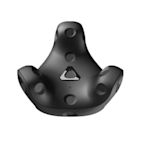搜尋結果
 $4290HTC 原廠 VIVE 移動定位器 3.0 (2021年全新版)購物中心
$4290HTC 原廠 VIVE 移動定位器 3.0 (2021年全新版)購物中心 $428HTC Desire 20+ 翻蓋掀蓋多功能插卡PU手機皮套 HTC 手機保護殼 防摔殼紅土在家!日韓手機殼周邊配件
$428HTC Desire 20+ 翻蓋掀蓋多功能插卡PU手機皮套 HTC 手機保護殼 防摔殼紅土在家!日韓手機殼周邊配件 $248現貨直出 HTC手機殼E8 M8 820 826 e9 e9+ X9 M9+ Butterfly2 A9立顯 環球數碼3C配件環球3C數碼配件 滿千減百
$248現貨直出 HTC手機殼E8 M8 820 826 e9 e9+ X9 M9+ Butterfly2 A9立顯 環球數碼3C配件環球3C數碼配件 滿千減百 $338HTC Desire 22 Pro 5G四角防摔兩邊磨砂內點紋保護套TPU殼 HTC 手機保護殼 防摔殼紅土在家!日韓手機殼周邊配件
$338HTC Desire 22 Pro 5G四角防摔兩邊磨砂內點紋保護套TPU殼 HTC 手機保護殼 防摔殼紅土在家!日韓手機殼周邊配件![寄修 換螢幕 連工帶料 HTC 手機維修 更換螢幕 總成 維修 M9 M10 U11 U12 U19e Desire U20 寄修 換螢幕 連工帶料 HTC 手機維修 更換螢幕 總成 維修 M9 M10 U11 U12 U19e Desire U20]() $800寄修 換螢幕 連工帶料 HTC 手機維修 更換螢幕 總成 維修 M9 M10 U11 U12 U19e Desire U20綠意生活工作室
$800寄修 換螢幕 連工帶料 HTC 手機維修 更換螢幕 總成 維修 M9 M10 U11 U12 U19e Desire U20綠意生活工作室![寄修 換螢幕 連工帶料 HTC 手機維修 更換螢幕 總成 維修 U11 U12 U19 U Ultra U20 M10H E9 E9+ Eye A9 寄修 換螢幕 連工帶料 HTC 手機維修 更換螢幕 總成 維修 U11 U12 U19 U Ultra U20 M10H E9 E9+ Eye A9]() $900寄修 換螢幕 連工帶料 HTC 手機維修 更換螢幕 總成 維修 U11 U12 U19 U Ultra U20 M10H E9 E9+ Eye A9綠意生活工作室
$900寄修 換螢幕 連工帶料 HTC 手機維修 更換螢幕 總成 維修 U11 U12 U19 U Ultra U20 M10H E9 E9+ Eye A9綠意生活工作室![imak適用于HTC手機殼HTC U11透明U12+保護套U11plus硅膠U11磨砂U2-潮友小鋪 imak適用于HTC手機殼HTC U11透明U12+保護套U11plus硅膠U11磨砂U2-潮友小鋪]() $438imak適用于HTC手機殼HTC U11透明U12+保護套U11plus硅膠U11磨砂U2-潮友小鋪潮友小鋪
$438imak適用于HTC手機殼HTC U11透明U12+保護套U11plus硅膠U11磨砂U2-潮友小鋪潮友小鋪![HTC U11 晶透亞克力 歐美熱銷透明殼 HTC 手機保護殼 防摔殼 HTC U11 晶透亞克力 歐美熱銷透明殼 HTC 手機保護殼 防摔殼]() $388HTC U11 晶透亞克力 歐美熱銷透明殼 HTC 手機保護殼 防摔殼紅土在家!日韓手機殼周邊配件
$388HTC U11 晶透亞克力 歐美熱銷透明殼 HTC 手機保護殼 防摔殼紅土在家!日韓手機殼周邊配件![【熱賣下殺價】卡通HTC手機殼D20+ U19E D19+ U12lite D12 + D12S U11 + U Ult 【熱賣下殺價】卡通HTC手機殼D20+ U19E D19+ U12lite D12 + D12S U11 + U Ult]() $300【熱賣下殺價】卡通HTC手機殼D20+ U19E D19+ U12lite D12 + D12S U11 + U UltY7960159676
$300【熱賣下殺價】卡通HTC手機殼D20+ U19E D19+ U12lite D12 + D12S U11 + U UltY7960159676![銳拓者micro usb車載充電器三星HTC手機充電器帶線車充帶包裝 銳拓者micro usb車載充電器三星HTC手機充電器帶線車充帶包裝]() $165銳拓者micro usb車載充電器三星HTC手機充電器帶線車充帶包裝【小姜的店】
$165銳拓者micro usb車載充電器三星HTC手機充電器帶線車充帶包裝【小姜的店】![寄修 換螢幕 連工帶料 HTC 手機維修 更換螢幕 總成 維修 U11 U12 U19 Desire U20 20 pro 寄修 換螢幕 連工帶料 HTC 手機維修 更換螢幕 總成 維修 U11 U12 U19 Desire U20 20 pro]() $800寄修 換螢幕 連工帶料 HTC 手機維修 更換螢幕 總成 維修 U11 U12 U19 Desire U20 20 pro綠意生活工作室
$800寄修 換螢幕 連工帶料 HTC 手機維修 更換螢幕 總成 維修 U11 U12 U19 Desire U20 20 pro綠意生活工作室![htc u20 5GD20 Pro透明色U19e軍事防摔手機殼 HTC 手機保護殼 防摔殼 htc u20 5GD20 Pro透明色U19e軍事防摔手機殼 HTC 手機保護殼 防摔殼]() $338htc u20 5GD20 Pro透明色U19e軍事防摔手機殼 HTC 手機保護殼 防摔殼紅土在家!日韓手機殼周邊配件
$338htc u20 5GD20 Pro透明色U19e軍事防摔手機殼 HTC 手機保護殼 防摔殼紅土在家!日韓手機殼周邊配件
Videos & Tools. Watch health videos on topics such as anatomy, body systems, and surgical procedures. Test your health knowledge with quizzes. Check your health with calculators and questionnaires.
- Summary
- Start Here
- Diagnosis and Tests
- Treatments and Therapies
- Related Issues
- Specifics
- Genetics
- Images
- Clinical Trials
- Journal Articles References and abstracts from MEDLINE/PubMed (National Library of Medicine)
Your thyroid is a small, butterfly-shaped gland in the front of your neck. It makes hormones that control the way the body uses energy. These hormones affect nearly every organ in your body and control many of your body's most important functions. For example, they affect your breathing, heart rate, weight, digestion, and moods.
Thyroid diseases cause your thyroid to make either too much or too little of the hormones. Some of the different thyroid diseases include:
•Goiter, an enlargement of the thyroid gland
•Hyperthyroidism, which happens when your thyroid gland makes more thyroid hormones than your body needs
•Hypothyroidism, which happens when your thyroid gland does not make enough thyroid hormones
•Thyroid cancer
•Thyroid and Parathyroid Hormones (Endocrine Society)
•Thyroid Disease (Department of Health and Human Services, Office on Women's Health) Also in Spanish
•Needle Biopsy (Mayo Foundation for Medical Education and Research) Also in Spanish
•Thyroid Antibodies (National Library of Medicine) Also in Spanish
•Thyroid Scan and Uptake (American College of Radiology; Radiological Society of North America) Also in Spanish
•Thyroid Tests (National Institute of Diabetes and Digestive and Kidney Diseases) Also in Spanish
•Thyroxine (T4) Test (National Library of Medicine) Also in Spanish
•Triiodothyronine (T3) Tests (National Library of Medicine) Also in Spanish
•Complementary and Alternative Medicine in Thyroid Disease (CAM) (American Thyroid Association)
•Older Therapies Aren't Necessarily Better for Thyroid Hormone Replacement (Food and Drug Administration)
•Thyroid Hormone Treatment (American Thyroid Association) Also in Spanish
•Thyroid Surgery (American Thyroid Association) Also in Spanish
•Celiac Disease and Thyroid Conditions (Gluten Intolerance Group)
•Pendred Syndrome (National Institute on Deafness and Other Communication Disorders) Also in Spanish
•Thyroid Eye Disorders (American Association for Pediatric Ophthalmology and Strabismus)
•Thyroid Nodules (Endocrine Society) Also in Spanish
•Inherited thyroxine-binding globulin deficiency: MedlinePlus Genetics (National Library of Medicine)
•Pendred syndrome: MedlinePlus Genetics (National Library of Medicine)
•Thyroidectomy - series (Medical Encyclopedia) Also in Spanish
•ClinicalTrials.gov: Goiter (National Institutes of Health)
•ClinicalTrials.gov: Thyroid Diseases (National Institutes of Health)
ABG. Arterial blood gases. You may have an ABG test to detect lung diseases. ACE. Angiotensin converting enzyme. Drugs called ACE inhibitors are used to treat high blood pressure, heart failure, diabetes and kidney diseases. ACL. Anterior cruciate ligament. Commonly injured part of the knee.
Hemoglobin is a protein in your red blood cells that carries oxygen from your lungs to the rest of your body. If your hemoglobin levels are abnormal, it may be a sign that you have a blood disorder. Other names: Hb, Hgb. What is it used for?
A hematocrit test is a blood test that measures how much of your blood is made up of red blood cells. Red blood cells carry oxygen from your lungs to the rest of your body. The other parts of your blood include white blood cells (to help fight infection), platelets (to help make blood clots to stop bleeding ), and a liquid called plasma.
Hydrochlorothiazide is used to treat edema (fluid retention; excess fluid held in body tissues) caused by various medical problems, including heart, kidney, and liver disease and to treat edema caused by using certain medications including estrogen and corticosteroids.
What is an MCV Blood Test? MCV stands for mean corpuscular volume. An MCV blood test measures the average size of your red blood cells. Red blood cells carry oxygen from your lungs to every cell in your body. Your cells need oxygen to grow, reproduce, and stay healthy.








